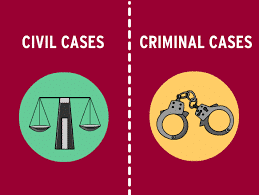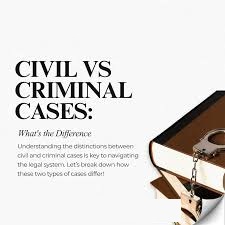Civil Court Case Timeline: From Filing to Final Judgment
Civil Court Case: A Complete Guide for Beginners

Civil Court Case is a legal process used to resolve disputes between individuals, businesses, or government entities. Unlike criminal cases, which involve offenses against the state, civil cases are about private disagreements where one party seeks compensation, enforcement of rights, or specific legal remedies. Understanding how civil court cases work is important if you are involved in a dispute or planning to file a lawsuit.
A Civil Court Case: What Is It?
When one party, referred to as the plaintiff, sues another, referred to as the defendant, alleging they were injured in some way, the civil court case starts. The plaintiff may request property, money, or the defendant’s halt to a certain action.
Civil courts, which focus on non-criminal situations like contract disputes, personal injury claims, property concerns, or family law proceedings like divorce or child custody, handle these instances.
Typical Civil Court Case Types:
A broad variety of legal challenges are covered by civil cases. Typical instances consist of:
- Contract disputes are disagreements about the terms, conditions, or violations of verbal or written agreements.
- Personal Injury: Claims pertaining to harm brought on by mishaps, carelessness, or misconduct in medicine.
- Property disputes are disagreements about property damage, ownership, or boundaries.
- Evictions, disagreements about rent, or lease infractions are examples of landlord-tenant issues.
- Employment issues include unfair firing, discrimination, and unpaid wages.
- Family law cases include spousal maintenance, child custody, and divorce.

A Civil Court Case’s Stages:
- Complaint filing: The plaintiff explains what transpired and what they want the court to do in a civil court case.
- Assisting the accused: The defendant is given time to react after being formally informed about the lawsuit.
- Response and Rebuttals: In response, the defendant either acknowledges or refutes the allegations. If they feel that the plaintiff has harmed them, they may potentially submit a counterclaim.
- Exploration: Through written inquiries, document requests, and depositions, both parties share information and obtain supporting documentation.
- Motions Before Trial: Before the trial starts, attorneys may request that the court dismiss particular aspects of the case or make specific rulings.
- Exam: The matter goes to trial if a settlement cannot be reached. A jury or judge hears both sides, considers the evidence, and renders a verdict.
- Evaluation: The court renders a decision that could result in monetary damages, a court order, or the matter being dismissed.
- Optional Appeal: If either party feels that the outcome was impacted by legal flaws, they have the right to appeal the verdict.

How Cases Are Handled in Civil Court?
The majority of civil court matters are settled prior to trial by:
- A settlement is an arrangement reached by both sides to settle the conflict amicably.
- Alternative conflict resolution procedures that involve an impartial third party include arbitration and mediation.
- In reality, very few civil cases proceed to a full trial.
Do You Require Legal Counsel?
Although hiring a lawyer is not necessary for a civil court case, it can be quite beneficial, particularly in complex instances. A lawyer is able to:
- Describe your rights.
- Manage legal documents
- represent you in court.
- Work out a settlement.
- Get witnesses and evidence ready.
- Advice on Winning a Civil Court Case
- Maintain a record of all correspondence, contracts, and associated papers.
- Be truthful and explicit in your claims and supporting data.
- Pay close attention to court processes and timelines.
- Show consideration for opposing parties and in court.
- If it saves money, time, and stress, think about settling.

In Conclusion:
One organized method of resolving legal issues between people or organizations is through a civil court lawsuit. It’s critical to comprehend the procedure, be aware of your rights, and be ready whether you’re defending yourself or bringing a lawsuit. You can safeguard your rights and seek a just settlement with the appropriate strategy—and legal assistance if required.

Post Comment